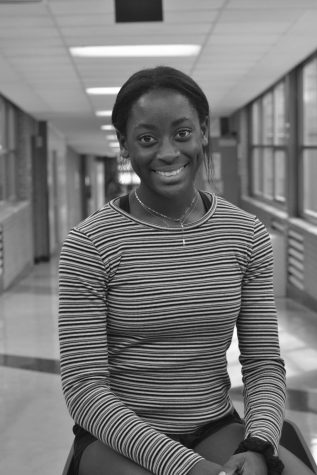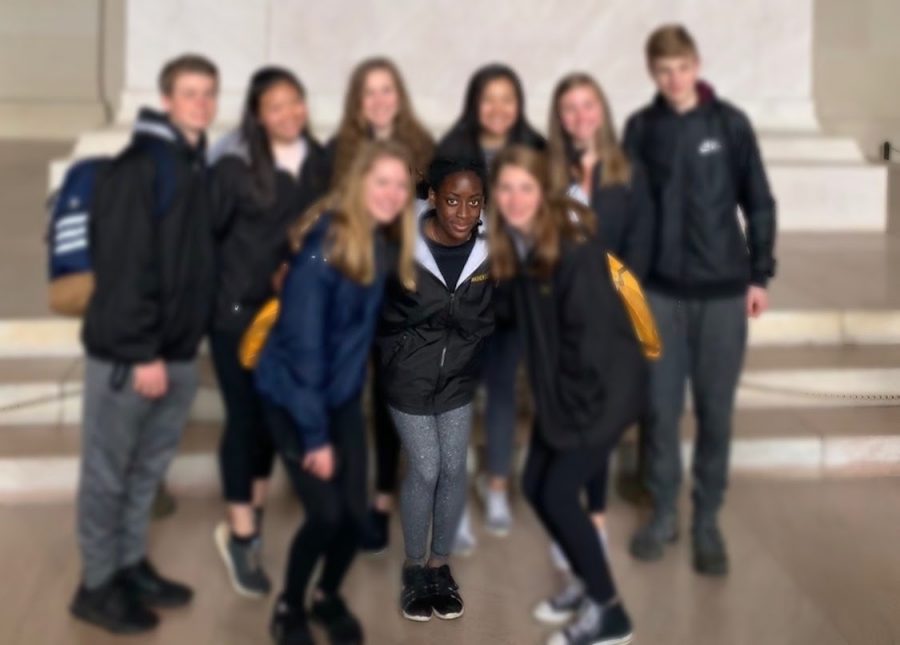In Case You Couldn’t Tell, I’m Black
This question has pondered in my mind, and has, in some ways, caused me to feel like I don’t belong in my own community. People in my school have had the nerve to tell me I’m not black enough, and I feel like some people need to be reminded of what it means to be BLACK.
Group of me and my friends on a school field trip.
What does it mean to be Black?
I want people to not be afraid to engage with what it means for me to be Black. People tiptoe around referring to me by my race or referring to “people like me”, but at the same time, so many people in my school have told me I’m not “black” enough. When I hear this, I can’t help but wonder where they got the guidelines on how to be “black” and how I was never given a copy of this supposed “rule book”. Moreover, comments like these affect how I interact with other black people, planting insecurity within myself that I’m not “authentically black” enough to fit in when in predominantly black groups outside of my own family.
A lot of popular musicians and television stars have this connection to urban black culture that everyone sees on a daily basis, but there is a false stereotype between these aspects of black culture and the definition of what it means to be black. It should be acceptable for me to not want to listen to rap music, not say the n-word when being interrogated by my peers to do so, or not “talk black” or “ghetto” to my white friends to appease their distorted view of blackness. For my non-black friends, just because someone may do these things, does not mean you may say you are “black”, “acting black”, or what I hear most frequently, “blacker than me”. Likewise, regardless of whether I do or don’t do these things, I am still black, and if I choose not to do those things, it does not mean I am rejecting my race.
I have friends that are understanding, know their boundaries, and know what we go through. But it’s hard because I also have many friends that don’t understand boundaries and some things they say just aren’t acceptable.
Some of those that try to do better have also developed a fear of using the term “black” to identify someone as a fear of being called racist. When you want to describe me to someone else, it’s okay to say something like “she’s black”. There’s no need to struggle through basic and vague qualifiers like “oh she has um… black hair….. she’s short,” because you’re afraid to say the most obvious thing about me in comparison to the vast majority of students at NA. I understand it can be uncomfortable to immediately use this distinction, especially when we are trying our best to be respectful and there’s a lot of history surrounding the connotations of describing people as “black”, however there’s a balance to being both practical and considerate in this respect.
In a separate regard, when describing me or anyone else as “black”, don’t try to walk around the perfectly fine term and say “African American” instead. Many black people in America either don’t hail from Africa at all or don’t consider themselves American. For me in particular, I am both Nigerian and Haitian, with rich and storied cultures from both sides of my family. For that reason, I wouldn’t necessarily call myself African-American, which has its own history in this country. If I’m mentioning my ethnicity, I’d call myself Afro-Caribbean and/or African. If there’s anything most people and I are comfortable with, it is being addressed as black, something I am still very much proud to be. This doesn’t have to be complicated. We could all name 20+ kids at NA that are short or have black hair, so it’s okay to cut to the chase. Black is not derogatory.
I just ask for people to understand what other people in the same position as me, living in a predominantly white community go through and that they should consider their interactions with people who are a part of the black community regarding any aspect of blackness, and how it impacts both me and whether or not it is respectful. My goal in this article is for people to learn and gain a sense of awareness, not to make them feel bad or feel the need to apologize for my “blackness”

Lola is a sophomore on the journalism staff. She is currently the entertainment editor.



Atinuke • Jun 8, 2021 at 11:24 am
Great article, interesting perspective.
Ope • May 13, 2021 at 4:08 pm
Fantastic article, and very enlightening. Thanks!
Michelle • Mar 13, 2020 at 11:09 pm
Oh my god Lola, so good.
Abbey Hahn • Mar 13, 2020 at 3:11 pm
Someone give this girl a Best of SNO!